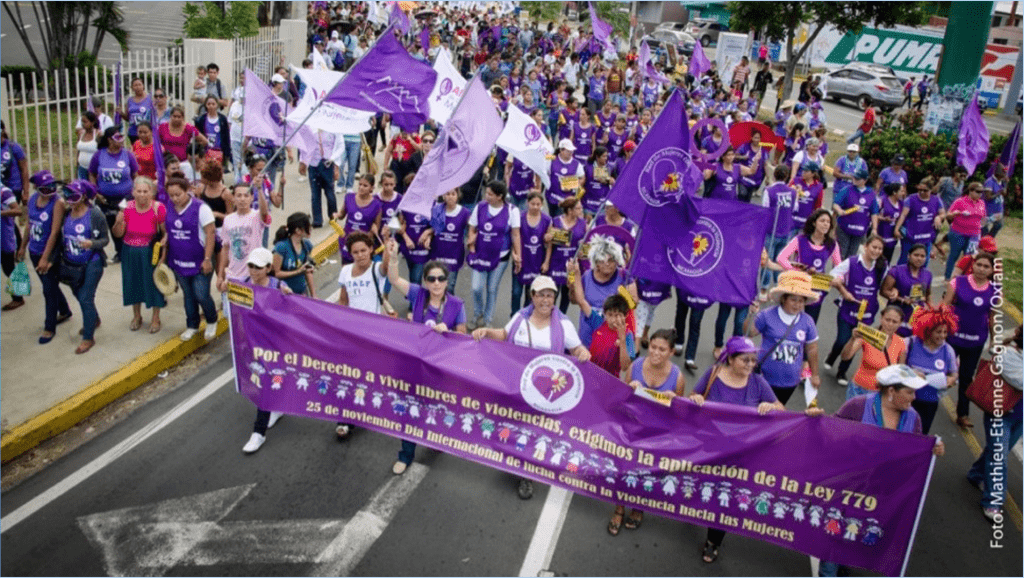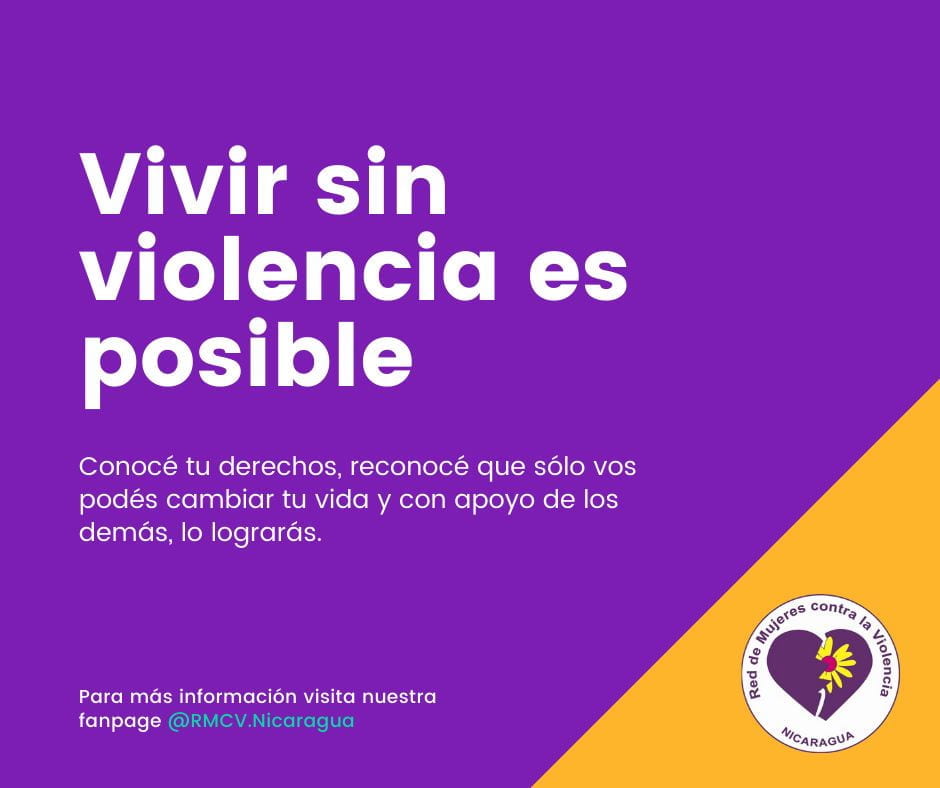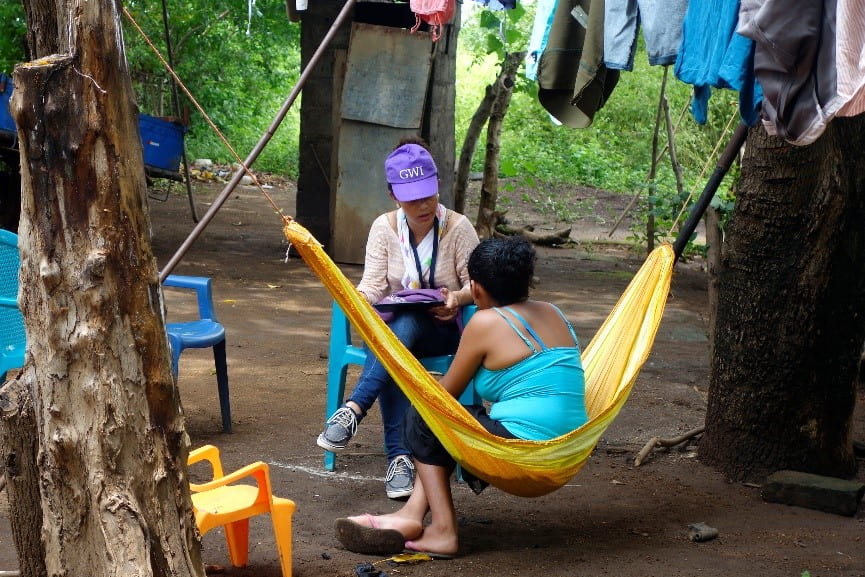Haga click aquí para leer el blog en español. Click here for the blog in Spanish.
The woman who sat facing me in the coffee shop in León, Nicaragua was still recognizable after more than 20 years. When I first met “Ana Cristina” in 1995, she was a young law student at León University and a participant in a study I led on domestic violence in Nicaragua—one of the first population-based prevalence studies examining violence against women and girls in Latin America.
The study’s purpose was to provide the data needed to persuade Nicaraguan lawmakers to protect women from domestic violence. Interviewing almost 500 women in 1995, we discovered that half had been beaten or raped by an intimate partner, and one-in-four had experienced violence during the past year.
Ana Cristina’s story became symbolic of many women’s stories and helped illustrate the horror behind these numbers: Ana Cristina had been married at 15 to a man who brutalized her and their two daughters for years. When she tried to report him to the police, they told her to be a better wife. When she tried to leave him, he won her back with apologies and gifts. Only her grandmother encouraged her to leave. Using a common phrase in Nicaragua, she asked: “Child, what are you going to do with candies in hell?”

The study’s findings were revelatory, sparking a wave of nationwide indignation. “I don’t want any more candies in hell” became a rallying cry for Nicaraguan women, and a powerful women’s movement won support for a new law—unanimously passed—to protect victims of domestic violence. Over the past 20 years, this movement has successfully advocated for better law enforcement and services for women and girls suffering violence, including specialized women’s police stations, crisis centers, and campaigns to raise awareness of women’s rights.

When my team and I conducted a follow-up study in León in 2015, we found that physical domestic violence was down by 70 percent—even after controlling for changes in demographic factors like age and education. The new study found that younger women were more likely to seek help for abuse, more aware of their legal rights, and much less likely than their older counterparts to believe that violence against women was justified. With men and women no longer repeating the violent behavior they saw growing up, our study showed—for the first time ever—that investments in legal reforms, special services for women, and transforming social norms can indeed prevent violence against women and girls on a large scale.

It’s hard to overstate the implications of this for other nations with high levels of violence against women. Every country is different, of course, and more research is needed. But Nicaragua shows that autonomous women’s movements and responsive governments can effectively treat a social problem many believe to be unsolvable.
But, it takes vigilance to keep violence at bay. When nations are in crisis or conflict, we are reminded how fragile the hard-won protections for women truly are. It is no coincidence that women’s hotlines and domestic violence shelters worldwide are reporting a huge spike in requests for help amidst the current coronavirus pandemic.
Nicaragua was in crisis even before the pandemic began. Shortly after we concluded data collection in 2016, the current Ortega regime shut down essential government services for women experiencing violence. Two years ago, they brutally repressed public protests, leaving hundreds dead and sending 70,000 others into exile, including one of the co-authors of our study. The public health crisis has only made the situation worse. Services and protections for women cannot be relaxed when new crises arise; if anything, they should be strengthened.

Twenty years after I first met her, I learned that Ana Christina’s daughters are now thriving. One became a doctor; the other a lawyer. She noted that there had been change, saying that violence against women is talked about much more. Women, she felt, had become more willing to act and less willing to be acted upon. “People,” she said, “are rejecting violence.” Once again, it’s time for the Nicaraguan government to follow their lead.

Dr. Mary Ellsberg is the Executive Director and Founding Director of the Global Women’s Institute at the George Washington University. Dr. Ellsberg has more than 30 years of experience in international research and programs on gender and development. Before joining the university in August 2012, Dr. Ellsberg served as Vice President for Research and Programs at the International Center for Research on Women. Dr. Ellsberg’s deep connection to global gender issues stems not only from her academic work, but also from living in Nicaragua for nearly 20 years, leading public health and women’s rights advocacy. She was a member of the core research team of the World Health Organization’s Multi-Country Study on Domestic Violence and Women’s Heath, and she has authored more than 40 books and articles on violence against women and girls. Dr. Ellsberg earned a doctorate in epidemiology and public health from Umea University in Sweden and a bachelor’s degree in Latin American studies from Yale University.


Be First to Comment